- Главная
- Сообщество
- carlo42

carlo42
0.00
О себе
Speaking Nurse: Academic Writing by Professionals Who Know Your FieldIntroduction: Why Nursing Students Need Specialized Academic Writing Support
Nursing education is one of the most rigorous and specialized fields in BSN Writing Services academia. With a curriculum grounded in clinical practice, evidence-based research, and ethical decision-making, nursing students must master a unique blend of practical knowledge and scholarly writing. From care plans and health assessments to policy evaluations and reflective journals, writing in a Bachelor of Science in Nursing (BSN) program demands fluency in a language all its own—the language of nursing.
This is where expert academic writers who are fluent in nursing discourse come into play. These professionals understand not only the mechanics of writing but also the complexities of nursing theory, clinical practice, and healthcare systems. They are not just writers—they are interpreters, translators, and amplifiers of your ideas, helping you succeed academically while preparing you for a profession built on clarity, precision, and communication.
In this article, we will explore the essential role that expert nursing writers play in supporting BSN students. We’ll look at the skills they bring to the table, the types of assignments they help with, and why their understanding of nursing language makes all the difference. Whether you're a pre-licensure student, a working RN pursuing a BSN, or part of an accelerated program, this guide will show you how to harness the power of nursing-savvy writers for academic success.Understanding the “Language of Nursing”
The language of nursing is more than just medical terminology. It’s a structured, analytical, and compassionate way of thinking and communicating. It includes:
Nursing education is one of the most rigorous and specialized fields in BSN Writing Services academia. With a curriculum grounded in clinical practice, evidence-based research, and ethical decision-making, nursing students must master a unique blend of practical knowledge and scholarly writing. From care plans and health assessments to policy evaluations and reflective journals, writing in a Bachelor of Science in Nursing (BSN) program demands fluency in a language all its own—the language of nursing.
This is where expert academic writers who are fluent in nursing discourse come into play. These professionals understand not only the mechanics of writing but also the complexities of nursing theory, clinical practice, and healthcare systems. They are not just writers—they are interpreters, translators, and amplifiers of your ideas, helping you succeed academically while preparing you for a profession built on clarity, precision, and communication.
In this article, we will explore the essential role that expert nursing writers play in supporting BSN students. We’ll look at the skills they bring to the table, the types of assignments they help with, and why their understanding of nursing language makes all the difference. Whether you're a pre-licensure student, a working RN pursuing a BSN, or part of an accelerated program, this guide will show you how to harness the power of nursing-savvy writers for academic success.Understanding the “Language of Nursing”
The language of nursing is more than just medical terminology. It’s a structured, analytical, and compassionate way of thinking and communicating. It includes:
- Clinical terminology
- Evidence-based frameworks
- Professional tone and patient sensitivity
- Ethical and legal awareness
- Cultural competency
- Interdisciplinary collaboration concepts
When writing academic papers, this language must be adapted to scholarly MSN Writing Services standards, usually formatted in APA style, and supported by peer-reviewed evidence. Without fluency in this unique communication style, even the most knowledgeable nursing student can struggle to express ideas effectively.Who Are These Expert Nursing Writers?
Expert writers who specialize in nursing content are not generalists or freelancers dabbling in various fields. Instead, they are:
 Academically Trained
Academically Trained
Most possess degrees in nursing (BSN, MSN, or even DNP). Some also hold dual degrees in healthcare administration, public health, or education.
 Clinically Experienced
Clinically Experienced
They’ve worked as nurses, nurse educators, or healthcare professionals. This firsthand experience helps them bring authenticity and accuracy to every assignment.
 Skilled in Scholarly Writing
Skilled in Scholarly Writing
They understand how to construct a solid thesis, analyze peer-reviewed studies, structure a coherent argument, and integrate citations flawlessly—all while maintaining a professional tone.
 Fluent in APA and Nursing Literature
Fluent in APA and Nursing Literature
These writers know the rules of APA 7th edition and are familiar with nurs fpx 4000 assessment 4 databases like CINAHL, PubMed, and the Cochrane Library. They can reference foundational theories, major journals, and current research trends with ease.What Sets Nursing-Aware Writers Apart from General Academic Writers?
Let’s compare a generic academic writer with a nursing-fluent writer:FeatureGeneral Academic WriterNursing-Aware Expert WriterUnderstands Medical Terminology
 Familiar with Clinical Practice
Familiar with Clinical Practice
 Can Accurately Format a Care Plan
Can Accurately Format a Care Plan
 Applies Evidence-Based PracticeMaybe
Applies Evidence-Based PracticeMaybe Writes with Compassionate Clinical Language
Writes with Compassionate Clinical Language
 Can Interpret Nursing Rubrics
Can Interpret Nursing Rubrics
 References Nursing Theorists Correctly
References Nursing Theorists Correctly
 Knows APA Rules for Health SciencesMaybe
Knows APA Rules for Health SciencesMaybe
As this chart shows, context matters. You wouldn't ask a travel writer to draft a nursing diagnosis or evaluate the impact of SBAR communication. You need someone who speaks nurse.Types of Assignments Where Nursing Expertise is Crucial
BSN programs require a wide range of writing assignments that are best supported by writers fluent in nursing discourse. Let’s explore these:
1. Care Plans
These require knowledge of NANDA-I diagnoses, nursing interventions, goals, and outcomes. A specialized writer understands how to turn clinical data into structured plans.
2. Evidence-Based Practice (EBP) Papers
EBP assignments require analyzing current studies and applying them to patient care. Nursing-fluent writers know how to conduct scholarly searches and evaluate methodological quality.
3. Reflective Journals
These papers ask students to think critically about their clinical nurs fpx 4005 assessment 4 experiences. A nurse-writer can help you strike a balance between personal insight and professional reflection.
4. Health Policy Briefs
Writers must evaluate legislation, policy trends, and their impact on patient care. This demands both political awareness and healthcare literacy.
5. Capstone Projects
Capstones often include research, community health initiatives, or quality improvement plans. Writers must synthesize vast amounts of data while meeting high academic standards.
6. Leadership and Ethics Essays
Nursing writers understand ethical frameworks, decision-making models, and leadership theories specific to healthcare environments.How Expert Writers Improve Your Academic Performance
Hiring an expert nursing writer isn’t just about meeting deadlines—it’s a strategy for long-term success. Here's how they help:
 Clarity and Confidence
Clarity and Confidence
Nursing concepts can be complex. Writers help articulate your thoughts clearly, boosting both your grade and your self-confidence.
 Time Management
Time Management
Between clinicals, jobs, and exams, students are stretched thin. A writing service saves hours of research, outlining, and editing.
 Learning by Example
Learning by Example
Each custom-written paper is a model you can study—helping you understand structure, citation, tone, and organization.
 Higher Grades
Higher Grades
Let’s be honest—good writing leads to better grades. A nurs fpx 4015 assessment 4 well-researched, APA-perfect paper is more likely to impress your professor.
 Reduced Stress
Reduced Stress
Nursing school is stressful enough. Writing support lightens the load and lets you focus on clinical skills and self-care.Why Understanding the Culture of Nursing Education Matters
Nursing school isn’t just about content—it’s about culture. Nursing educators have high expectations for professionalism, compassion, and evidence-based thinking. Writers who understand this culture are better equipped to:
Expert writers who specialize in nursing content are not generalists or freelancers dabbling in various fields. Instead, they are:
 Academically Trained
Academically TrainedMost possess degrees in nursing (BSN, MSN, or even DNP). Some also hold dual degrees in healthcare administration, public health, or education.
 Clinically Experienced
Clinically ExperiencedThey’ve worked as nurses, nurse educators, or healthcare professionals. This firsthand experience helps them bring authenticity and accuracy to every assignment.
 Skilled in Scholarly Writing
Skilled in Scholarly WritingThey understand how to construct a solid thesis, analyze peer-reviewed studies, structure a coherent argument, and integrate citations flawlessly—all while maintaining a professional tone.
 Fluent in APA and Nursing Literature
Fluent in APA and Nursing LiteratureThese writers know the rules of APA 7th edition and are familiar with nurs fpx 4000 assessment 4 databases like CINAHL, PubMed, and the Cochrane Library. They can reference foundational theories, major journals, and current research trends with ease.What Sets Nursing-Aware Writers Apart from General Academic Writers?
Let’s compare a generic academic writer with a nursing-fluent writer:FeatureGeneral Academic WriterNursing-Aware Expert WriterUnderstands Medical Terminology

 Familiar with Clinical Practice
Familiar with Clinical Practice
 Can Accurately Format a Care Plan
Can Accurately Format a Care Plan
 Applies Evidence-Based PracticeMaybe
Applies Evidence-Based PracticeMaybe Writes with Compassionate Clinical Language
Writes with Compassionate Clinical Language
 Can Interpret Nursing Rubrics
Can Interpret Nursing Rubrics
 References Nursing Theorists Correctly
References Nursing Theorists Correctly
 Knows APA Rules for Health SciencesMaybe
Knows APA Rules for Health SciencesMaybe
As this chart shows, context matters. You wouldn't ask a travel writer to draft a nursing diagnosis or evaluate the impact of SBAR communication. You need someone who speaks nurse.Types of Assignments Where Nursing Expertise is Crucial
BSN programs require a wide range of writing assignments that are best supported by writers fluent in nursing discourse. Let’s explore these:
1. Care Plans
These require knowledge of NANDA-I diagnoses, nursing interventions, goals, and outcomes. A specialized writer understands how to turn clinical data into structured plans.
2. Evidence-Based Practice (EBP) Papers
EBP assignments require analyzing current studies and applying them to patient care. Nursing-fluent writers know how to conduct scholarly searches and evaluate methodological quality.
3. Reflective Journals
These papers ask students to think critically about their clinical nurs fpx 4005 assessment 4 experiences. A nurse-writer can help you strike a balance between personal insight and professional reflection.
4. Health Policy Briefs
Writers must evaluate legislation, policy trends, and their impact on patient care. This demands both political awareness and healthcare literacy.
5. Capstone Projects
Capstones often include research, community health initiatives, or quality improvement plans. Writers must synthesize vast amounts of data while meeting high academic standards.
6. Leadership and Ethics Essays
Nursing writers understand ethical frameworks, decision-making models, and leadership theories specific to healthcare environments.How Expert Writers Improve Your Academic Performance
Hiring an expert nursing writer isn’t just about meeting deadlines—it’s a strategy for long-term success. Here's how they help:
 Clarity and Confidence
Clarity and ConfidenceNursing concepts can be complex. Writers help articulate your thoughts clearly, boosting both your grade and your self-confidence.
 Time Management
Time ManagementBetween clinicals, jobs, and exams, students are stretched thin. A writing service saves hours of research, outlining, and editing.
 Learning by Example
Learning by ExampleEach custom-written paper is a model you can study—helping you understand structure, citation, tone, and organization.
 Higher Grades
Higher GradesLet’s be honest—good writing leads to better grades. A nurs fpx 4015 assessment 4 well-researched, APA-perfect paper is more likely to impress your professor.
 Reduced Stress
Reduced StressNursing school is stressful enough. Writing support lightens the load and lets you focus on clinical skills and self-care.Why Understanding the Culture of Nursing Education Matters
Nursing school isn’t just about content—it’s about culture. Nursing educators have high expectations for professionalism, compassion, and evidence-based thinking. Writers who understand this culture are better equipped to:
- Interpret vague rubrics
- Align with instructor preferences
- Avoid unprofessional or inappropriate language
- Maintain the right balance of humility and confidence
A good writer will never cross ethical lines. Instead, they guide you, support your voice, and ensure that your ideas meet academic expectations.Real-World Scenarios Where Nursing-Wise Writers Make a Difference
Here are some examples of students who benefited from expert nursing writing:
 Case 1: The Overwhelmed RN
Case 1: The Overwhelmed RN
A full-time nurse in an RN-to-BSN program needed to write a cultural competence paper but hadn’t written academically in years. A professional nursing writer helped craft a strong, personalized paper based on her experiences, ensuring APA accuracy and scholarly depth.
 Case 2: The ABSN Student with Limited Time
Case 2: The ABSN Student with Limited Time
An accelerated BSN student had two back-to-back clinical rotations and three assignments due. Using a writing service, he submitted professionally structured papers and passed the semester with top grades—without compromising his clinical focus.
 Case 3: The ESL Nursing Student
Case 3: The ESL Nursing Student
A brilliant student from the Philippines struggled with grammar and phrasing. A nursing-fluent writer helped her shape her thoughts into fluent, clear prose while maintaining her original voice.What to Look for in a Writing Service with Nursing Expertise
Not all services are created equal. When looking for nursing-aware writers, check for:
Here are some examples of students who benefited from expert nursing writing:
 Case 1: The Overwhelmed RN
Case 1: The Overwhelmed RNA full-time nurse in an RN-to-BSN program needed to write a cultural competence paper but hadn’t written academically in years. A professional nursing writer helped craft a strong, personalized paper based on her experiences, ensuring APA accuracy and scholarly depth.
 Case 2: The ABSN Student with Limited Time
Case 2: The ABSN Student with Limited TimeAn accelerated BSN student had two back-to-back clinical rotations and three assignments due. Using a writing service, he submitted professionally structured papers and passed the semester with top grades—without compromising his clinical focus.
 Case 3: The ESL Nursing Student
Case 3: The ESL Nursing StudentA brilliant student from the Philippines struggled with grammar and phrasing. A nursing-fluent writer helped her shape her thoughts into fluent, clear prose while maintaining her original voice.What to Look for in a Writing Service with Nursing Expertise
Not all services are created equal. When looking for nursing-aware writers, check for:
- Writers with verified nursing backgrounds
- Transparent revision policies
- Confidentiality and originality guarantees
- Samples of previous nursing papers
- 24/7 support and communication
- Knowledge of APA and nursing databases
Tips for Collaborating with a Nursing-Focused Writer
To get the most out of the service:
To get the most out of the service:
- Be Clear and Specific – Share your syllabus, grading rubric, and professor’s notes.
- Include Your Clinical Experience – Let the writer know what you’ve seen or done—they can weave it into reflective or application-based essays.
- Ask for Edits – Good writers welcome feedback. Don’t be afraid to ask for changes.
- Study the Final Product – Use it as a learning tool to improve your own writing skills.
- Stay Engaged – Communicate regularly for the best outcome.
Ethical Considerations: Academic Integrity and Personal Growth
Using a writing service doesn’t mean abandoning your responsibility. It means seeking professional guidance to meet high expectations.
To stay ethical:
Using a writing service doesn’t mean abandoning your responsibility. It means seeking professional guidance to meet high expectations.
To stay ethical:
- Use the paper as a draft or model
- Don’t plagiarize—always personalize or cite properly
- Learn from the structure, tone, and citations
- Be honest about your contribution if asked
You’re not cheating—you’re collaborating with a professional to become a better scholar and, ultimately, a better nurse.Looking Ahead: Preparing for Graduate-Level Nursing Education
BSN is just the beginning for many. If you plan to become an NP, nurse educator, or researcher, you’ll need even more advanced writing skills.
Working with nursing-aware writers now can help you:
BSN is just the beginning for many. If you plan to become an NP, nurse educator, or researcher, you’ll need even more advanced writing skills.
Working with nursing-aware writers now can help you:
- Understand grad-school-level research papers
- Write literature reviews
- Learn how to critique sources
- Develop professional writing habits
- Build the confidence to publish or present at conferences
This is an investment in your academic future.Conclusion: The Power of Nurses Helping Nurses—Through Writing
In a field that values compassion, precision, and advocacy, writing is one of your most powerful tools. It’s how you share insights, influence policy, improve patient outcomes, and advance your career.
By working with expert writers who understand the language of nursing, you’re not outsourcing your voice—you’re amplifying it.
These professionals are not just editors or ghostwriters. They’re partners in your academic journey—mentors who speak your language and understand your goals. With their support, you can tackle any assignment with clarity, confidence, and professionalism.
So, the next time you’re faced with a complex nursing paper, remember: help is just a click away. And it comes from someone who truly speaks nurse.
In a field that values compassion, precision, and advocacy, writing is one of your most powerful tools. It’s how you share insights, influence policy, improve patient outcomes, and advance your career.
By working with expert writers who understand the language of nursing, you’re not outsourcing your voice—you’re amplifying it.
These professionals are not just editors or ghostwriters. They’re partners in your academic journey—mentors who speak your language and understand your goals. With their support, you can tackle any assignment with clarity, confidence, and professionalism.
So, the next time you’re faced with a complex nursing paper, remember: help is just a click away. And it comes from someone who truly speaks nurse.
 Мягкая мебель
Мягкая мебель  Кресла
Кресла  Диваны
Диваны  Пуфы
Пуфы  Раскладные диваны
Раскладные диваны  Модульные диваны
Модульные диваны  Камни из шерсти
Камни из шерсти  Офисные диваны
Офисные диваны  Кресла мешки
Кресла мешки  Угловые диваны
Угловые диваны  Освещение
Освещение 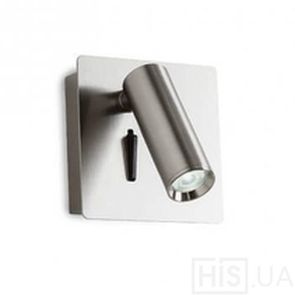 Бра
Бра  Люстры
Люстры  Настольные лампы
Настольные лампы  Торшеры
Торшеры 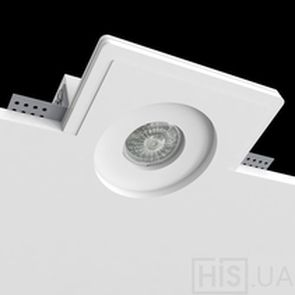 Встроенные светильники
Встроенные светильники 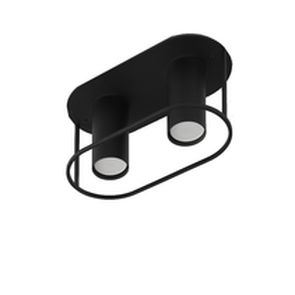 Потолочные светильники
Потолочные светильники  Магнитные системы
Магнитные системы  Трековые светильники
Трековые светильники  Уличные светильники
Уличные светильники 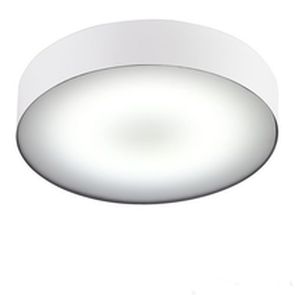 Светильники для ванной комнаты
Светильники для ванной комнаты 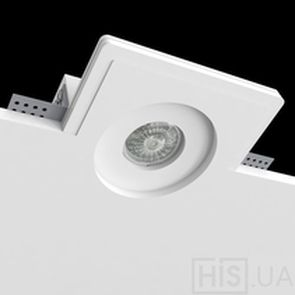 Гипсовые светильники
Гипсовые светильники 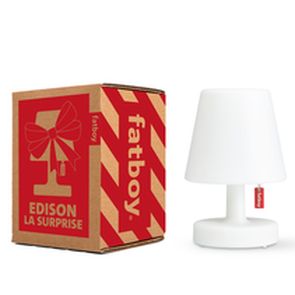 Аккумуляторные лампы
Аккумуляторные лампы  Акустические светильники
Акустические светильники  Текстильная трековая система
Текстильная трековая система  Столы
Столы  Журнальные столики
Журнальные столики  Рабочие столы
Рабочие столы  Кухонные столы
Кухонные столы  Столы для переговорных
Столы для переговорных  Раскладные столы
Раскладные столы  Круглые столы
Круглые столы 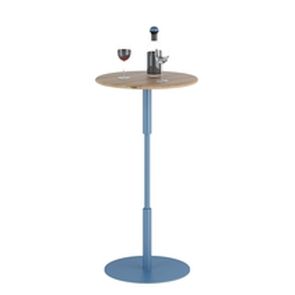 Барные столы
Барные столы  Кухонные комплекты
Кухонные комплекты  Декор
Декор  Подушки
Подушки 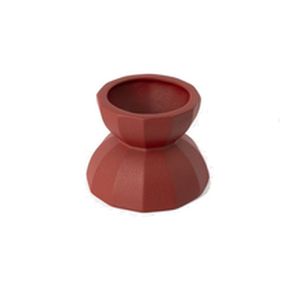 Свечи и подсвечники
Свечи и подсвечники  Зеркала
Зеркала  Панно, Картины
Панно, Картины  Ковры
Ковры  Вазоны для цветов
Вазоны для цветов 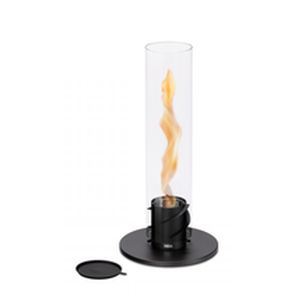 Био камины
Био камины  Настольный декор
Настольный декор  Настенные часы
Настенные часы  Вазы
Вазы 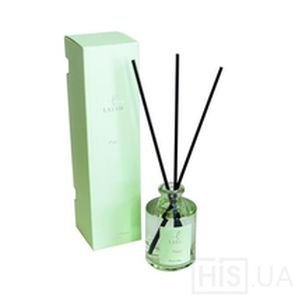 Ароматы для дома
Ароматы для дома  Деревянные карты мира
Деревянные карты мира  Стулья
Стулья  Табуреты
Табуреты  Барные стулья
Барные стулья  Лавки
Лавки  Стулья для дома и офиса
Стулья для дома и офиса 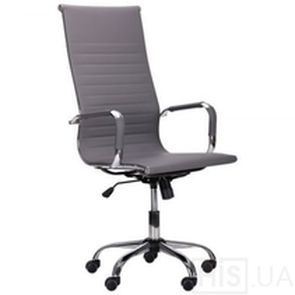 Офисные кресла
Офисные кресла  Пластиковые стулья
Пластиковые стулья 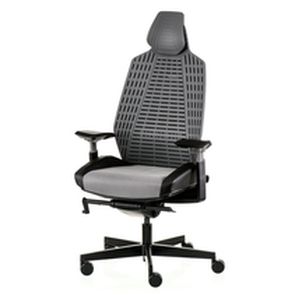 Геймерские кресла
Геймерские кресла  Поворотные стулья
Поворотные стулья  Детская мебель
Детская мебель 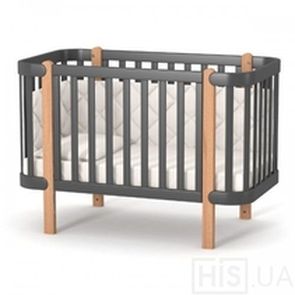 Детские кровати
Детские кровати  Детские стулья и кресла
Детские стулья и кресла  Детские столы
Детские столы  Детские качалки
Детские качалки  Шкафы в детскую комнату
Шкафы в детскую комнату 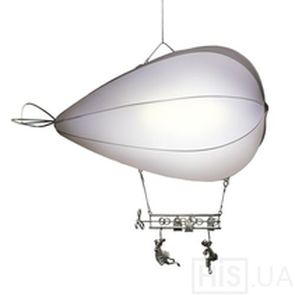 Освещение в детскую
Освещение в детскую  Пеленальные столики
Пеленальные столики  Комоды в детскую комнату
Комоды в детскую комнату  Кровати
Кровати  Хранение
Хранение  Тумбы
Тумбы  Консоли
Консоли  Вешалки
Вешалки  Стеллажи
Стеллажи  Комоды
Комоды  Шкафы
Шкафы  Полки
Полки  Тумбы под ТВ
Тумбы под ТВ  Прикроватные тумбочки
Прикроватные тумбочки  Прихожая
Прихожая 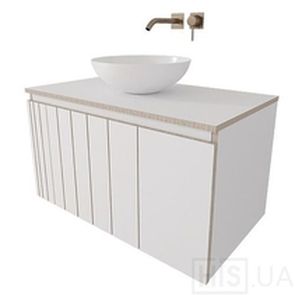 Тумбы в ванную
Тумбы в ванную  Крючки
Крючки  Ванная комната
Ванная комната  Полотенцесушители
Полотенцесушители  Раковины из бетона
Раковины из бетона 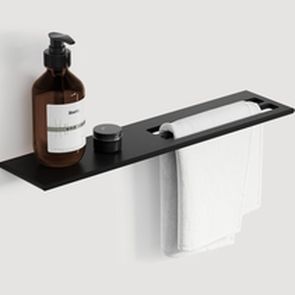 Аксессуары для ванной
Аксессуары для ванной  Ванны из литого камня
Ванны из литого камня  Обои
Обои  Влагостойкие обои
Влагостойкие обои  Виниловые обои
Виниловые обои  Текстильные обои
Текстильные обои  Обои расписанные вручную
Обои расписанные вручную  Текстиль
Текстиль  Пледы
Пледы  Постельное белье
Постельное белье  Стеновые панели
Стеновые панели 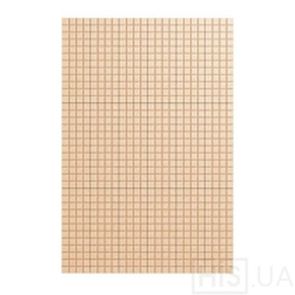 Звукопоглощающие панели
Звукопоглощающие панели  Ковры
Ковры  Матрасы
Матрасы  Мебель для офиса
Мебель для офиса  Компьютерные и офисные столы
Компьютерные и офисные столы  Стеллажи для офиса
Стеллажи для офиса  Офисное освещение
Офисное освещение  Уличная мебель
Уличная мебель  Садовые стулья
Садовые стулья  Садовые кресла
Садовые кресла  Садовые столы
Садовые столы  Садовые барные стулья
Садовые барные стулья  Акустические перегородки
Акустические перегородки  Кухни
Кухни  Кухонные комплекты
Кухонные комплекты  Чаши для костра
Чаши для костра  Интерьеры
Интерьеры  HoReCa
HoReCa  Интерьер дома
Интерьер дома  Интерьер квартиры
Интерьер квартиры  Общественный интерьер
Общественный интерьер  Интерьер офиса
Интерьер офиса  Интерьер пентхауса
Интерьер пентхауса  Интерьер магазина
Интерьер магазина  Смарт квартира
Смарт квартира  Фотография
Фотография 